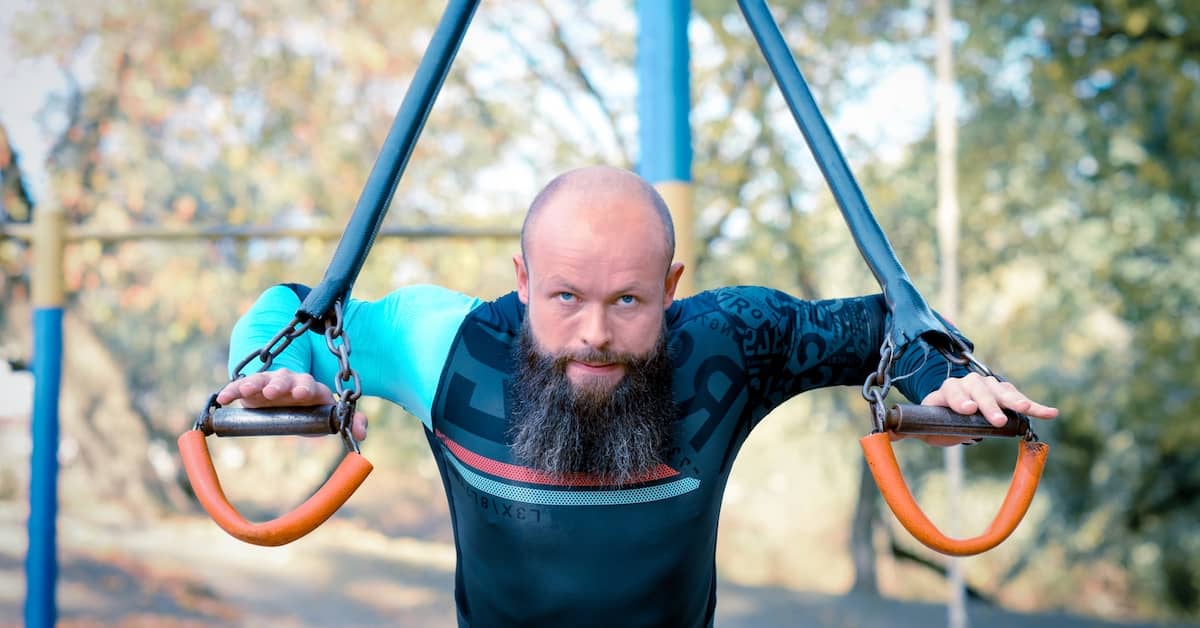
What if the secret to a sharper mind and a longer life was right in the palm of your hand—literally? It turns out, the strength of your handshake could reveal far more about your overall health than you might expect. Studies suggest that grip strength is not only a reliable predictor of longevity but also an insightful measure of cognitive function. Could building muscle be the key to maintaining a healthier brain as you age? The latest research offers compelling evidence that a stronger body may mean a sharper mind.
Key Takeaways
- Grip Strength as a Health Indicator – Research shows that handgrip strength is a better predictor of overall health and longevity than common measures like blood pressure or body weight.
- Muscle Strength and Cognitive Health – Studies link greater muscle strength to a significantly lower risk of cognitive decline, including Alzheimer’s disease.
- The Brain-Muscle Connection – Higher grip strength correlates with better cognitive performance, potentially due to increased brain volume, stronger neural pathways, and reduced inflammation.
How a Simple Squeeze of Your Hand Can Reveal Your Brain’s Health
As strange as it sounds, the strength of your handshake is a key determinant of your state of health. Even more surprising, it's a better measure than high blood pressure or obesity for predicting the chances of dying from heart disease or indeed from any cause.4 So it’s not surprising that grip strength has also been shown to be a good indicator of how well our brains are functioning. Here’s the proof...
Muscle Strength Up - Alzheimer's Risk Down
Because explicit links exist between the body's motor and cognitive systems, it might be possible to assess brain function by examining how well muscles are functioning. To test this idea, a Japanese study measured handgrip and four other measures of physical strength in 1,552 cognitively healthy men and women over the age of 65. After adjusting for several factors that could influence the findings, the researchers found that greater upper and lower body strength was associated with better cognitive functioning and a lower risk of developing cognitive impairment.1 Another study included more than 900 retired, dementia-free people living in Chicago. The researchers tested eleven muscle groups including grip strength. Follow-up 3½ years later found that 138 had developed Alzheimer's. Each one-unit increase in muscle strength at the beginning of the study was linked to a 43% reduced risk of Alzheimer's. Those with the highest muscle strength had a 61% decreased risk of developing Alzheimer's compared to those with the least strength.2 There’s more. In a review of 15 studies published last year, the researchers concluded, "Findings here support the use of handgrip strength as a way to monitor cognitive changes and show that reduced handgrip strength over time may serve as a predictor of cognitive loss with advancing age."3
Muscles and Brain - "A Clear Connection"
The most recent study was published in April using data from the UK Biobank of 475,397 individuals. Grip strength was measured against five cognitive tasks covering reaction time, reasoning, ability to remember numbers, recollection of pictures, and prospective memory. The last item in that list tests whether participants can remember to act on an instruction after a delay period. After gender, age, weight, education, and geographical location were taken into account, a significant correlation was found between grip strength and each of the cognitive tasks tested.4 The precise nature of the link between muscle and mind is not clear, but higher total brain volume is known to be associated with larger muscles. In addition, older people with stronger grip strength have fewer indications of degradation in the brain's white matter. These bundles of nerve tissue link up different brain regions, carry impulses from one cell to another and are needed for both physical and mental tasks. Another proposed link between the brain and muscles is through inflammation. Higher inflammatory markers predict both age-related cognitive decline and weakened grip. Summing up the findings of the study, lead author Dr. Joseph Firth, an honorary research fellow at the University of Manchester, commented, "We can see there is a clear connection between muscular strength and brain health. But what we need now are more studies to test if we can make our brains healthier by doing things which make our muscles stronger – such as weight-training."5
Summary
Recent studies suggest that grip strength is not just a measure of physical fitness—it’s also a key predictor of cognitive function and overall longevity. Research has shown that individuals with greater muscle strength have a significantly lower risk of developing Alzheimer’s and other forms of cognitive decline. The connection between muscle and brain health may stem from factors such as brain volume, neural integrity, and inflammation reduction. Scientists now believe that strength training and muscle-building exercises could play a crucial role in preserving mental acuity as we age.
Frequently Asked Questions
How does grip strength relate to brain health?
Grip strength is linked to cognitive function, with studies showing that stronger individuals tend to have better memory, reasoning skills, and reaction times.
Can improving muscle strength reduce the risk of Alzheimer’s?
Research suggests that greater muscle strength is associated with a lower risk of Alzheimer’s and cognitive decline, possibly due to its impact on brain volume and neural connectivity.
Why is grip strength a better health predictor than blood pressure or obesity?
Unlike traditional health markers, grip strength reflects overall muscle function, which plays a crucial role in longevity, brain health, and disease prevention.
Does strength training improve cognitive function?
While more studies are needed, existing research indicates that muscle-strengthening exercises may help maintain or improve brain health, reducing the risk of cognitive decline.
How can I improve my grip strength?
Engaging in resistance training, using hand grippers, performing deadlifts, and incorporating exercises like farmer’s carries can help build grip strength and overall muscle health.
- Narazaki K, Matsuo E, Honda T, Nofuji Y, Yonemoto K, Kumagai S. Physical Fitness Measures as Potential Markers of Low Cognitive Function in Japanese Community-Dwelling Older Adults without Apparent Cognitive Problems. J Sports Sci Med. 2014 Sep 1;13(3):590-6. PMID: 25177186; PMCID: PMC4126296.
- Boyle PA, Buchman AS, Wilson RS, Leurgans SE, Bennett DA. Association of muscle strength with the risk of Alzheimer disease and the rate of cognitive decline in community-dwelling older persons. Arch Neurol. 2009 Nov;66(11):1339-44. doi: 10.1001/archneurol.2009.240. PMID: 19901164; PMCID: PMC2838435.
- Fritz NE, McCarthy CJ, Adamo DE. Handgrip strength as a means of monitoring progression of cognitive decline - A scoping review. Ageing Res Rev. 2017 May;35:112-123. doi: 10.1016/j.arr.2017.01.004. Epub 2017 Feb 8. PMID: 28189666.
- Firth, J., Stubbs, B., Vancampfort, D., Firth, J. A., Large, M., Rosenbaum, S., Hallgren, M., Ward, P. B., Sarris, J., & Yung, A. R. (2018). Grip Strength Is Associated With Cognitive Performance in Schizophrenia and the General Population: A UK Biobank Study of 476559 Participants. Schizophrenia Bulletin, 44(4), 728-736. https://doi.org/10.1093/schbul/sby034
- Addelman, M. (2018, April 19). Research reveals stronger people have healthier brains. University of Manchester.
